When the microfiber pollution issue was beginning to make international headlines a few years ago, Parkdale Advanced Materials, the innovative fibers and yarns division of Parkdale Inc., and now joint venture partner, Intrinsic Textiles Group, were already working together to scale their scientifically proven solution that had been in development since 2012.

Today, CiCLO® technology, their sustainable textile ingredient, is a well-known and trusted brand that is used in a wide variety of products sitting on retail shelves – with near-infinite growth potential. CiCLO® technology is an upstream solution invented by textiles industry veterans and designed to mitigate fugitive synthetic microfiber pollution by allowing polyester and nylon to biodegrade like natural materials when they end up in the environment. Importantly, CiCLO® polyester and nylon fibers retain the performance characteristics of their conventional counterparts during manufacture, use and care, and ONLY biodegrade in the presence of microbes and moisture over extended periods of time (just like cotton or wool).
Consider how huge such a breakthrough is: More than 60 percent of today’s textiles are made with synthetic fibers, according to The Good Trade, and 35 percent of microplastics entering the ocean come via synthetic materials. According to the Ellen MacArthur Foundation, the annual estimates of synthetic microfibers entering the oceans is equivalent in weight to over 50 billion plastic bottles.
So tackling such a hot-button issue was a right-place, right-time proposition for Gastonia, N.C.-based Parkdale and Hayward, Calif.-based Intrinsic.
After over a year of collaboration and trials, the two companies announced a formal joint venture to scale the game-changing technology within the textile and apparel realm in 2018. Two of the key team leaders – Cheryl Smyre of Parkdale and Andrea Ferris of Intrinsic – knew that convincing textile manufacturers and, ultimately, brands that an additive could actually accelerate biodegradability of polyester and nylon would require indisputable scientific proof, but both companies were and continue to be fully committed to the time and resources it takes to educate the industry and brands about plastics biodegradation, under what circumstances it is a truly sustainable solution, how to test in various environments, and how to responsibly market products made with biodegradable synthetics to consumers.
And that’s exactly what they’ve done over the last four-plus years, spending the lion’s share of their time speaking with and visiting potential customers and extolling the virtues of CiCLO® after hundreds of tests and trials confirmed its validity. They stayed vigilant in their mission even during the pandemic through a multitude of virtual meetings.
And their work is paying off.
A number of global mills such as Cone Denim, Coats, Crystal SAS, UTEXA, Carrington Textiles and Meridian Specialty Yarn Group (MSYG), to name a few – and brands such as Target, Billabong, Definite Articles, Oakley, Aeropostale, Sheets & Giggles and others have adopted CiCLO® technology.
All told, CiCLO® products ranging from apparel and accessories to household textiles can be found in all major retailers, and the technology is being integrated in every textile-producing country, with over 200 manufacturers producing yarn, fabrics and finished goods, Smyre said.
Most recently, CiCLO® reached Target stores via its in-house women’s denim brand Wild Fable – with plans to extend the technology into other apparel categories, she added.
“It gives us tremendous validation that these big brands who have to dot every i and cross every t during extensive vetting have chosen to work with us,” Smyre said. “There are so many more launching soon, and we're very excited.”
Numerous 'eureka' moments
Through their journey to educate the industry about CiCLO® technology, Smyre and Ferris said they witnessed numerous “eureka” moments along the way.
“Since launching, we have become completely scrutinized, and ultimately recognized and trusted as a solution to mitigate microfiber pollution in the environment,” Ferris said. “And we saw the conversation change completely from, ‘how could that possibly work?’ to ‘how do you test it?’ to ‘we want it.’ Just yesterday we gave our standard presentation to a major accessories company and the verbatim response at the end was ‘sounds great – let’s just use it.’ We’ve gained confidence from customers through all of the technical conversations that we've been having for years, which we continue to do to educate the industry. It’s been a really beautiful thing to see interest, and adoptions grow exponentially.”

Andrea Ferris (L) and Intrinsic Textiles Group and Cheryl Smyre of Parkdale at the recent Kingpins show

A lot of their work involves meeting stakeholders from all areas of a business, including sustainability, product development, marketing, legal and supply chain teams. Once all parties have approved use of CiCLO® technology, they source CiCLO® fiber and yarn from a global network of CiCLO® certified manufacturer mills that can provide any spec staple or filament without limitation. CiCLO® certified manufacturing partners are required to participate in the CiCLO® traceability program to authenticate every lot of fiber produced, and also agree to stand behind the quality of the fiber they supply.
“For the past four years, we've been talking to manufacturers, brands and retailers, sharing our long-term biodegradation test data from third-party labs around the world, explaining how CiCLO® additive contributes to greatly accelerated biodegradation in wastewater treatment plant sludge, soil, sea water and anaerobic landfill conditions … uncontrolled natural environments where microfibers shed from textiles are prolific pollutants that cannot be recovered once fugitive,” Smyre said. “Our focus has been on educating the brands, explaining the science and making sure they're comfortable with the technology so that they can then market it to the consumer in a responsible way.”
The CiCLO® team used the COVID-19 pandemic as an opportunity to build the brand and strengthen its growth strategy, Ferris said. During the past two-plus years, the pandemic accelerated many companies’ focus on sustainability, so interest in a solution for synthetic microfiber pollution and development with CiCLO® polyester and nylon has grown even while supply chains and the economy are suffering in many areas, she added.
“We’ve really gone after it,” she said. “We’ve made incredible progress with many, many brands across many markets of apparel and home textiles. We're at the point where it has taken off, and we're thrilled, extremely humbled and excited about the future. Our entire team is genuinely inspired every day with the knowledge that our work helps reduce unavoidable plastic pollution all over the world. Polyester and nylon are not going away any time soon, and while there are some excellent solutions to lessen the shedding of fabrics, microfiber pollution will unfortunately never go away completely. That’s the unfortunate reality. So, CiCLO® technology is like a built-in insurance to help lessen the impact when synthetic fibers end up as unrecoverable plastic pollution in the environment.”

The flags that flew at Rockefeller Center were made with CiCLO® fibers and yarn.
CiCLO® fabrics are also used widely for soft signage, available through Beaver Paper and other fabric mills. When Bird, an electric scooter and bike company, IPOed, they chose CiCLO® polyester for their enormous banner hanging in front of the NYSE. The 193 flags representing the UN Nations at New York’s Rockefeller Center were made with CiCLO® polyester for an installation that flew throughout April in honor of Earth Day, then again on June 5th for World Environment Day. The exhibition, themed "Only One Earth,” was a collaboration between the Climate Museum and the United Nations Environment Programme (UNEP) for Rockefeller Center’s annual, crowdsourced art exhibition, "The Flag Project." People from all around the world submitted original art representing the environment and how to live in harmony with nature.
The CiCLO® brand made a big splash in May at the Techtextil North America tradeshow in Atlanta. The team stayed busy with appointments and walk-by traffic in their 10x20 booth the entire three days, and were inundated by the amount of interest in companies seeking a solution to microfiber pollution, according to Smyre. On hand at the CiCLO® booth was Alan McIntosh, who cofounded Intrinsic with Ferris.
Making CiCLO® a reality
The idea to invent a biodegradable polyester started for McIntosh and Ferris in 2012, when they were teammates at a workwear company supplying a large national fast casual restaurant chain with a turnkey uniforms program.
“Polyester is a very desirable material for uniforms due to its availability, affordability, high durability – a sustainable attribute as well! – excellent performance characteristics, and because it is easy care,” Ferris said. “We were already using recycled polyester as a feedstock, which was a first step, and we were trying to figure out ways to get back the uniforms for recycling, but to no avail for many reasons. Recognizing that all of those uniforms were going to landfill, and shedding tiny plastic fibers during manufacture, use and care, we just knew we needed to invent a better polyester and biodegradation seemed to be the only real solution. We didn’t invent biodegradable plastic. It’s available and has been used in the medical industry and others for ages. We used science to guide us in creating a biodegradable technology very specifically for the needs of the textiles industry. We were our own customer … creating something to solve our own problem. Over time we realized we had created something incredibly beneficial, and the environmental impact would be much greater if we sold it as a textiles ingredient.”
In early trials, they ran into problems such as spinning efficiency, fiber breakage and dye uptake inconsistency, she said. So they hired a chief scientist from a Cradle 2 Cradle background with a Ph.D. in Engineering, Sudeep Rao, to experiment, and address these issues. It took several years to develop a proprietary formulation specifically for use in textiles that can meet the rigorous requirements of textiles – and also have biodegradation characteristics. To make sure the technology really worked, they tested it at third-party labs using internationally recognized ASTM Test Methods that measure rate and extent of plastics biodegradation to ensure it would enable polyester to fully biodegrade – and, egad, they discovered that it would, Ferris said.

Tiny fibers cause big problems. Pelagic crabs shackled by synthetic microfibers.
What’s the science behind the technology? CiCLO® synthetic textiles “mimic nature” and behave like natural fibers when they end up as pollutants in the environment, according to the company. This is accomplished by embedding countless biodegradable spots throughout the matrix of the plastic, and these spots act like nutrient sources for microbes that naturally exist in the environment. That means, when textiles made with CiCLO® -enhanced fibers end up in environments where biodegradation can occur naturally, microbes are attracted to the fibers and can mineralize them at rates comparable to natural fibers, such as wool. (Learn more about how CiCLO® works.)
The chemistry used to create CiCLO® additive is also ECO PASSPORT by OEKO-TEX certified, a third-party verification process demonstrating safety for use in sustainable textile manufacturing and conformance to the MRSL of the ZDHC Program. All components are REACH compliant, and studied have been done to confirm that it is non-toxic to marine life.
In 2017, McIntosh and Ferris officially spun off Intrinsic from their uniforms company, Way To Be, to formalize a separate company to focus only on bringing CiCLO® fibers, yarns and fabrics to market. They did a soft launch of the technology at the Outdoor Retailer Summer Show that year at an Outdoor Industry Association event.
“It had tremendous success, with tons of interest from the time we launched, and has not slowed,” Ferris said. “No one has ever heard our pitch and told us it’s a bad idea!”
Around the same time that they launched, they met Parkdale Mills and its synthetic fibers technical director, Bob Usher, who was deeply intrigued with the possibilities of the technology. So he and his team at Parkdale brought it in-house to test on yarn, and perform dyeing and biodegradation trials in natural seawater, anaerobic landfill conditions, wastewater treatment plants sludge and soil. After about a year and a half of positive results, Parkdale and Intrinsic formed the joint venture to create a “perfect marriage,” Ferris said.
“We have always focused on innovation and being efficient, forward thinking and really the gold standard in terms of yarn spinning,” Smyre said. “And this complements our business because it is a sustainable product.”
Parkdale had created its Advanced Materials Division with the goal of developing sustainable, synthetic technology for the industry, according to Charles Heilig, president of Parkdale Mills, Inc.

“Through that division, we are looking to drive innovation into our products, through technology,” he said. “We were exploring biodegradable opportunities, and we felt like Intrinsic Textiles Group had the best technology out there. During our extensive research, we discovered they had a solution that was superior to anything else available in terms of providing a biodegradable solution. So from an advanced materials standpoint, we felt like forming a partnership would allow us to deliver biodegradable technology to the market at a much quicker pace than we could have accomplished through our own research and development. One of our guiding principles is that we are action oriented, and this is but one example.”
Smyre, who at the time had been with Parkdale for 22 years, moved into the division at its creation. (The business unit has since developed another groundbreaking technology, dytru®, a revolutionary polyester fiber that uses advanced textile technology and fewer resources to deliver increased dyeing capacity at a lower processing cost and a smaller environmental impact.)
“CiCLO® technology complements our business because it is a sustainable product. The brands and their supply chains are constantly looking for what's next, especially around sustainable solutions. Polyester is a desired material for many reasons, but one of the negatives is that it doesn't have a positive impact on the environment unless it is recycled polyester,” Smyre said. “The beauty of CiCLO® is that it works with virgin and recycled polymers.”
She added: “CiCLO® is a scientifically proven solution to help mitigate the unavoidable synthetic microfiber pollution caused by textiles. Research shows that microfibers are the most prevalent form of microplastic in aquatic, atmospheric and terrestrial environments across the globe. We’re glad to be able to provide our customers a solution to a real-world problem of huge concern.”


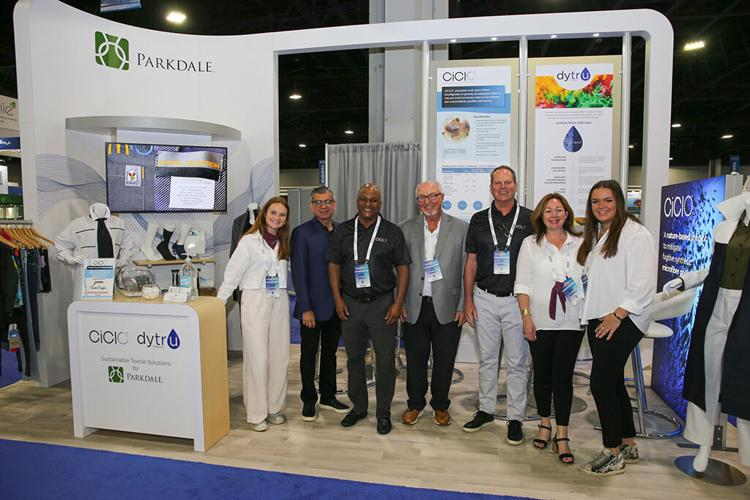
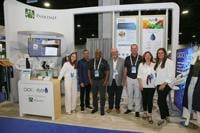
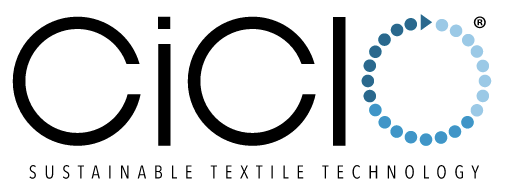




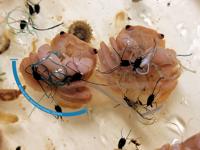

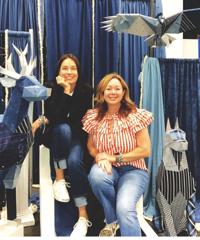

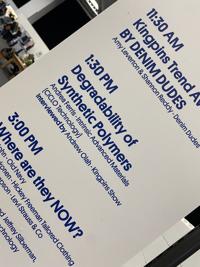

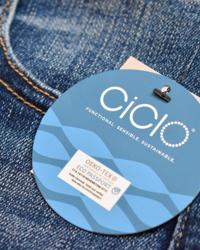
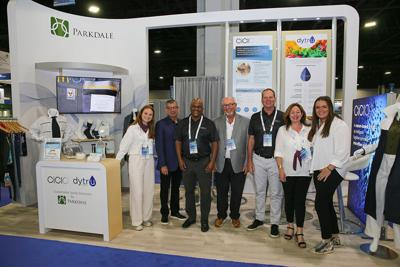
(0) comments
Welcome to the discussion.
Log In
Keep it Clean. Please avoid obscene, vulgar, lewd, racist or sexually-oriented language.
PLEASE TURN OFF YOUR CAPS LOCK.
Don't Threaten. Threats of harming another person will not be tolerated.
Be Truthful. Don't knowingly lie about anyone or anything.
Be Nice. No racism, sexism or any sort of -ism that is degrading to another person.
Be Proactive. Use the 'Report' link on each comment to let us know of abusive posts.
Share with Us. We'd love to hear eyewitness accounts, the history behind an article.